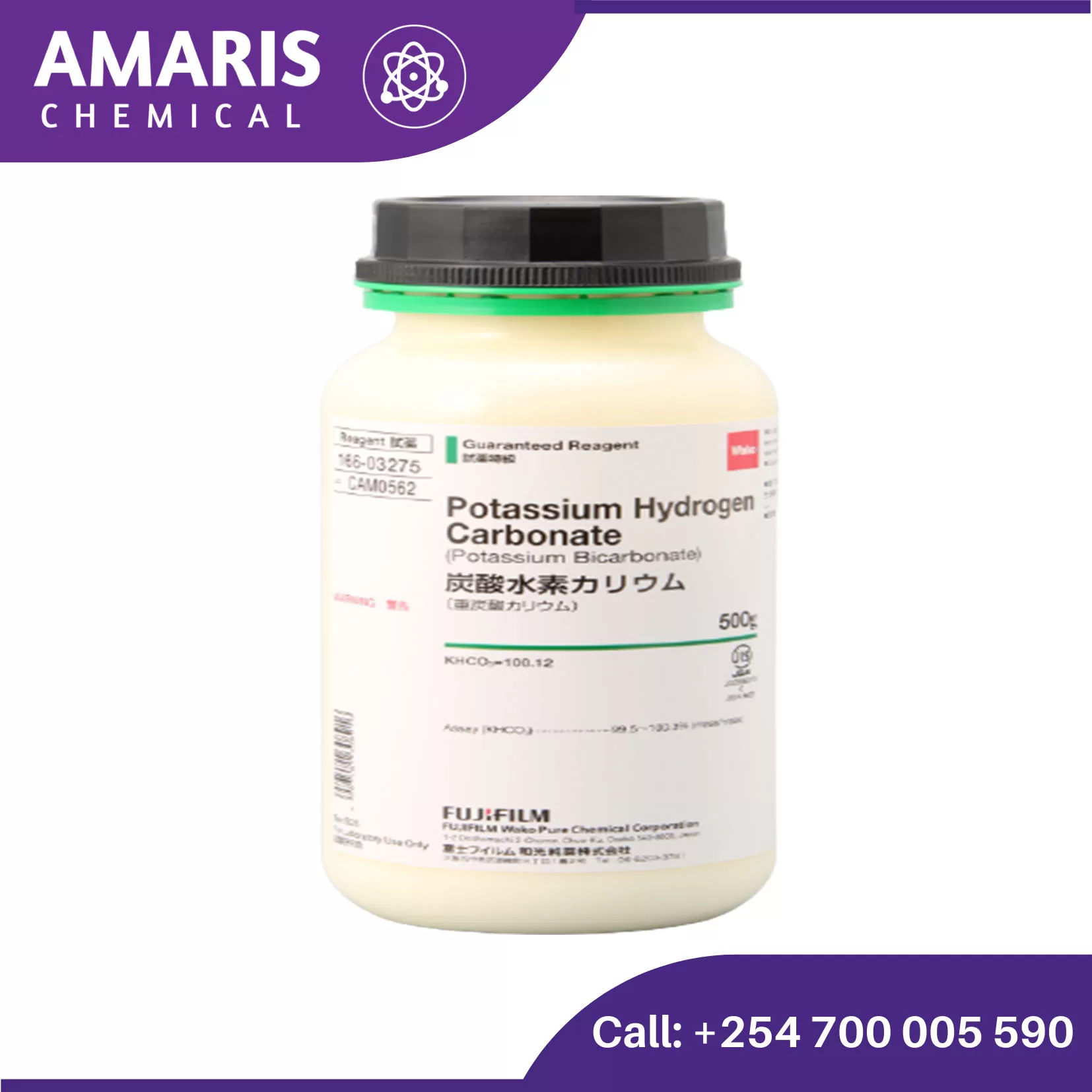Uses of Potassium Hydrogen Carbonate
- Buffer Preparation:
- pH Control: Potassium hydrogen carbonate is often used in the preparation of buffer solutions to maintain a stable pH during experiments, especially in biological and chemical research.
- Reagent:
- Chemical Reactions: It acts as a mild base and is used in reactions that require a weak alkaline environment.
- Carbonate Source: It can be used to introduce carbonate ions (CO₃²⁻) into reactions.
- Neutralization:
- Acid Neutralization: Used to neutralize acidic solutions, making it useful for titration experiments where precise pH control is necessary.
- Gas Evolution Experiments:
- Carbon Dioxide Generation: When potassium hydrogen carbonate reacts with acids, it releases carbon dioxide (CO₂) gas. This property is used in experiments that require a controlled release of CO₂.
- Standardization:
- Analytical Chemistry: Employed as a standard substance in titrations and other analytical procedures to determine the concentration of unknown acids or bases.
- Crystallization Experiments:
- Crystal Growth: Sometimes used in crystallization experiments to study the formation and properties of bicarbonate crystals.
- Calibration:
- Instrument Calibration: Used to calibrate pH meters and other analytical instruments that require accurate pH control.












Reviews
There are no reviews yet.